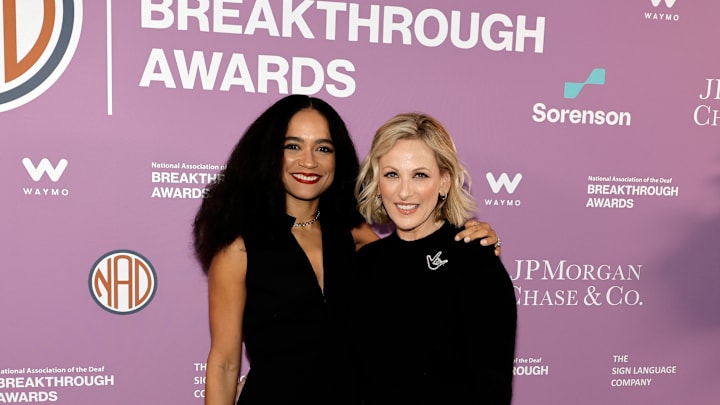How people see disabilities is heavily influenced by what they see in the media. When able-bodied actors play disabled characters, it can reinforce stereotypes and misconceptions about living with a disability. Real representation can help people understand and empathize with those who have disabilities, showing their real experiences and the challenges they face.
The missed opportunity
Time and again, Hollywood has overlooked disabled actors for roles that should be theirs. This not only denies them jobs but robs audiences of genuine storytelling. The industry’s failure to embrace real representation keeps outdated narratives alive instead of breaking down barriers and allowing disabled actors to thrive.
Many able-bodied actors claim they can study a disability, shadow a few people, and learn how to imitate it. While this may work to a degree, they still have the privilege of an “out” whenever they want—they can stop acting and return to their regular lives. Disabled people don’t have that option. Lived experience shapes how disabled individuals navigate the world, influencing their emotions, responses, and interactions in ways that able-bodied actors simply cannot replicate.
Excuses, excuses: Why directors defend able-bodied casting
Casting able-bodied actors in disabled roles has long been defended with flimsy justifications, including:
1. Disabled actors are "too difficult" to accommodate on set.
This excuse ignores the legal requirements of accessibility and the creativity that can lead to inclusive solutions. It suggests a lack of willingness, not a lack of possibility.
2. "Star power" is needed to make the project financially successful.
This argument overlooks the growing evidence that diverse casts resonate with audiences and can drive box office success. It also undervalues the talent within the disabled acting community.
3. Roles require "physical transformation" that only non-disabled actors can achieve.
This often stems from a limited understanding of disability and the diverse capabilities of disabled individuals. It also presumes that disability is solely a physical limitation, rather than a lived identity.
4. Acting is about "pretending," so casting authentically shouldn’t matter
While acting involves imagination, it also demands empathy and authenticity. For roles deeply rooted in specific lived experiences, authentic casting elevates the performance and the narrative's integrity.
5. It’s too dangerous for a disabled actor in this role.
This excuse often stems from unfounded fear or a lack of imagination regarding how to safely integrate disabled actors into demanding roles, or a failure to consider the diverse range of abilities within the disabled community.
Michael Ojeda, director of Avenged (2013), defended casting a hearing actress as a deaf woman by claiming he needed “an actress capable of performing intense action sequences.” Yet, Hollywood has long relied on stunt doubles, and history proves that disabled performers are more than capable. Take Kitty O’Neal, a Deaf stuntwoman who doubled for Lynda Carter in Wonder Woman and set the women’s land speed record in 1976, reaching 512.710 mph—a record that stood until Jessi Combs broke it in 2019.
Disabled actors breaking barriers
While systemic change is slow, notable disabled actors have proved Hollywood wrong:
- Marlee Matlin (Deaf) – Won an Oscar for Children of a Lesser God.
- RJ Mitte (Cerebral Palsy) – Starred in Breaking Bad.
- Peter Dinklage (Achondroplasia) – Rose to fame in Game of Thrones.
- Lauren Potter (Down Syndrome) – Shined in Glee.
- Alaqua Cox (Deaf) – Marvel’s Echo brought her into the spotlight.
- Troy Kotsur (Deaf) – Won an Oscar for CODA, making history as the first Deaf male actor to win.
- Lauren Ridloff (Deaf) – Starred in The Walking Dead and became Marvel’s first Deaf superhero in Eternals.
- Gavin McHugh (Cerebral Palsy) – Plays Christopher Diaz in 9-1-1
For some great examples of authentic disability representation, check out these top 10 movies.
The path forward
Change in the industry is long overdue. A truly inclusive Hollywood requires intentional efforts from casting directors, producers, and audiences alike.
By demanding authentic representation, we can push the industry toward a more equitable and diverse future.
